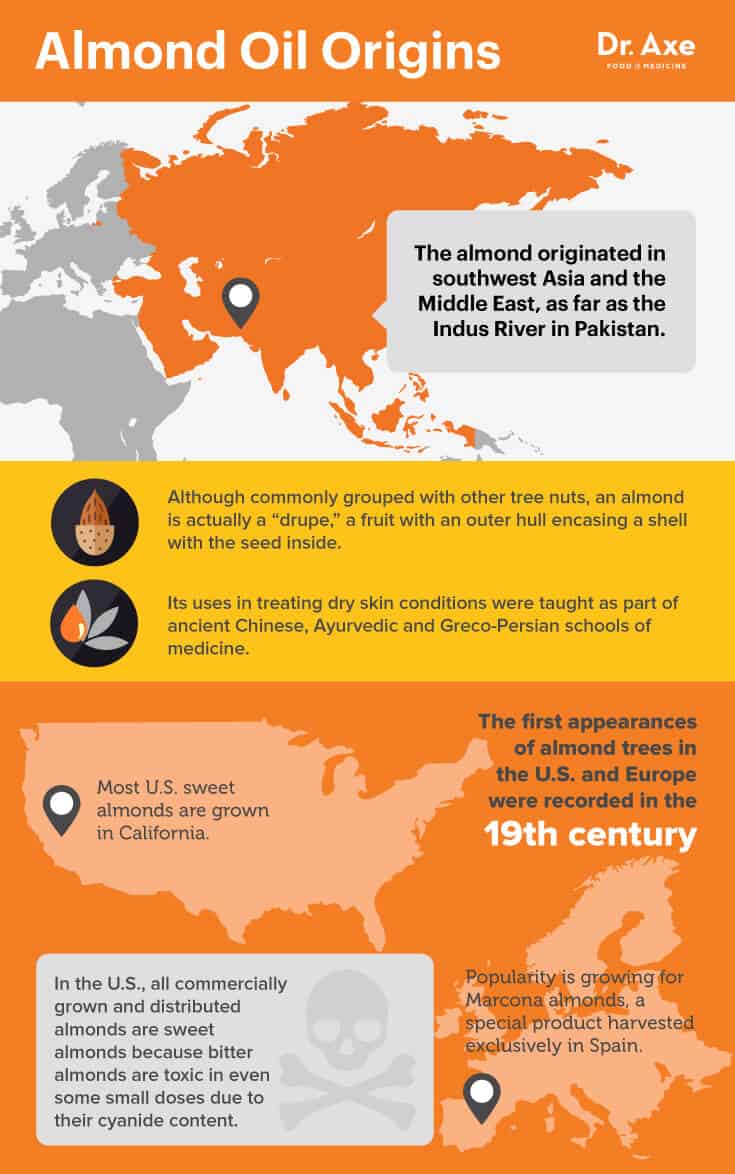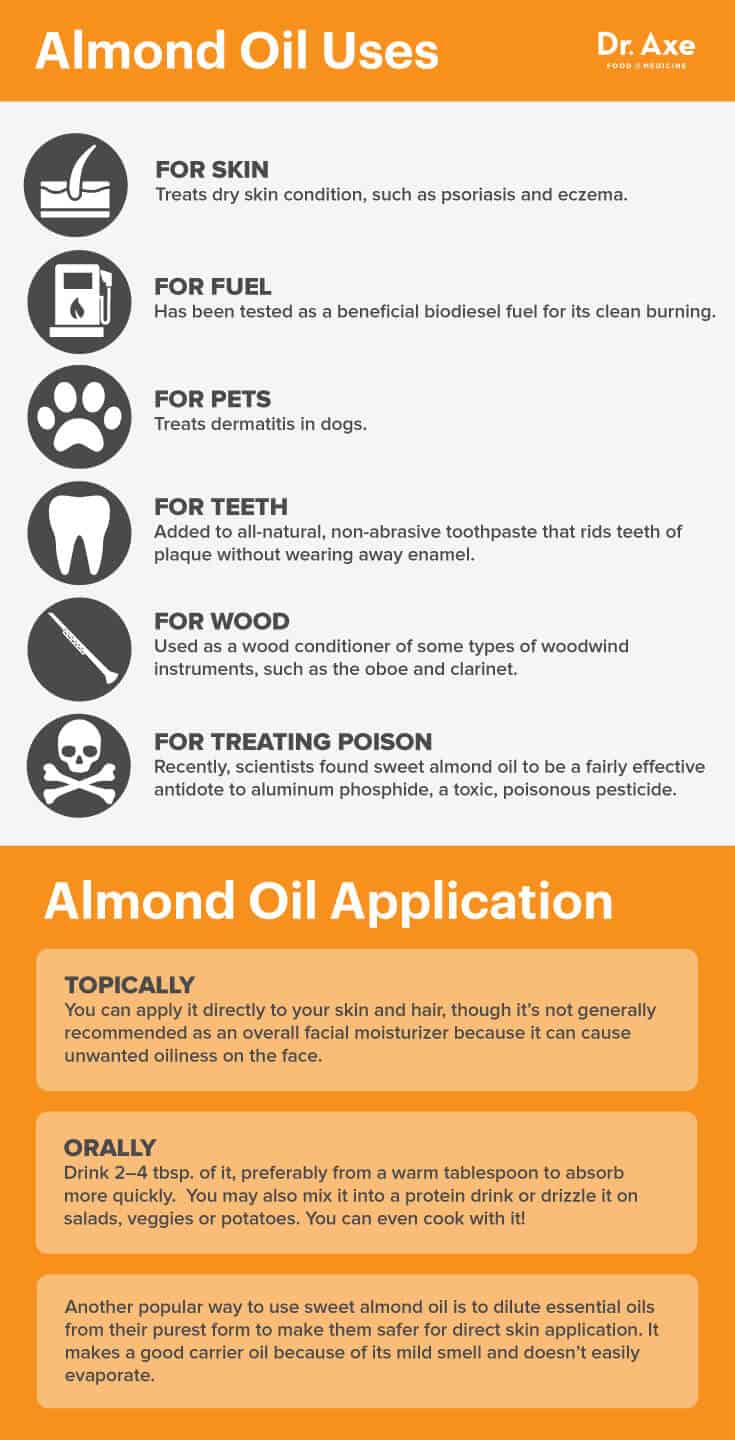This Dr. Axe content is medically reviewed or fact checked to ensure factually accurate information.
With strict editorial sourcing guidelines, we only link to academic research institutions, reputable media sites and, when research is available, medically peer-reviewed studies. Note that the numbers in parentheses (1, 2, etc.) are clickable links to these studies.
The information in our articles is NOT intended to replace a one-on-one relationship with a qualified health care professional and is not intended as medical advice.
This article is based on scientific evidence, written by experts and fact checked by our trained editorial staff. Note that the numbers in parentheses (1, 2, etc.) are clickable links to medically peer-reviewed studies.
Our team includes licensed nutritionists and dietitians, certified health education specialists, as well as certified strength and conditioning specialists, personal trainers and corrective exercise specialists. Our team aims to be not only thorough with its research, but also objective and unbiased.
The information in our articles is NOT intended to replace a one-on-one relationship with a qualified health care professional and is not intended as medical advice.
Almond Oil Benefits for Dry Skin, Eczema, Stretch Marks & More
May 19, 2022

Your skin needs it. Your heart needs it. Even your colon needs it! Almond oil takes the mighty, nutrition-rich almonds and transforms it into a powerful oil with incredible benefits.
Though there are two main kinds of almonds that create almond oil, the one used for most homeopathic and cosmetic purposes is sweet almond oil. Don’t let the name fool you, though: Sweet almond oil is a dynamic substance that’s anything but sweet. In fact, it helps address bad cholesterol, cardiovascular disease, dry skin, damaged hair and more.
What Is Almond Oil?
The almond, or Prunus dulcis (also known as Amygdalus communis L.), originated in southwest Asia and the Middle East, as far as the Indus River in Pakistan. Prunus dulcis and its synonyms officially refer to the tree from which the edible almond seeds are cultivated.
Although commonly grouped with other tree nuts like nutritious cashews, what you know as an almond is actually a “drupe,” a fruit with an outer hull encasing a shell with the seed inside.
Almond domestication started when, centuries ago, farmers began to identify and pick the sweet type of almond. Bitter almonds are occasionally used in oil form, but it’s widely understood that bitter almond is toxic in even some small doses as it contains cyanide. In the U.S., all commercially grown and distributed almonds are sweet almonds.
Interestingly, there are some uses of bitter almond oil that may be undertaken with a doctor’s supervision. When the cyanide has been extracted from bitter almond oil, it has antiviral, antibacterial, anti-itch, antifungal and antispasmodic properties.
As with most foods, almonds have varieties within their general categories. While the typical sweet almond varieties available in the U.S. are grown in California, popularity is growing for Marcona almonds, a special product harvested exclusively in Spain. For cooking purposes, Marcona almonds are even sweeter than standard almonds, plumper and have a “wet” texture. When oil is extracted, the different varieties of sweet almond oil can be subtly noticed, but all sweet almonds have basically the same nutritional value.

Related: Walnut Oil Benefits for the Heart, Skin, Gut & More
Nutrition Facts
- One hundred grams of almond oil contains 60 international units of vitamin E, 200 percent of the daily recommended amount.
- Other than a small amount of vitamin K, other vitamins and minerals are found in only negligible amounts in almond oil.
- Generally, its benefits are found in incredibly dense amounts of unsaturated fat.
Health Benefits
1. Regulates Cholesterol
One of the most widely known benefits of almond oil is its ability to regulate cholesterol. Regular consumption of almond oil raises HDL cholesterol (known as “good” cholesterol), lowers LDL (“bad” cholesterol) and generally lowers overall cholesterol levels naturally.
Between the high unsaturated fat content (which is already really good for your cholesterol levels) and vitamin E, almond oil allows oxygen and nutrients to flow freely through your blood, meaning that your heart will thank you for gifting it with almond oil.
2. Reduces Risk of Heart Disease
Not only can you expect better cholesterol levels with almond oil as a regular part of your diet, but you can also look forward to a decreased risk of cardiovascular disease, according to a 2014 study published in the Journal of Research in Medical Sciences.
Heart disease, like high cholesterol and many other conditions, is often caused by chronic inflammation. Real foods with antioxidative and anti-inflammatory properties like almond oil, therefore, generally reduce your risk for many common health conditions.
3. Keeps Your Colon and Rectum Healthy
Almond oil is extremely effective in helping keep you healthy in the colon and rectum regions. For example, studies indicate that consuming almonds reduces your risk of colon cancer. Almond oil injection is also the first method of treatment to cure rectal prolapse in children.
In another study, patients with idiopathic pruritus ani (an unexplained itching of the anal region that can’t be cured by medication) were given almond oil injections. Almost 93 percent of participants were permanently healed after the first treatment, and the additional patients that went through a brief remission and then had the condition recur were cured after their second treatments.
Almond oil can also be used as a natural laxative. To ingest almond oil, simply drink two to four tablespoons of it, preferably from a warm tablespoon, as it absorbs more quickly into your system if its temperature is closer to your natural body temperature. You may also mix it into a protein drink or drizzle it on salads, veggies or potatoes. You can even cook with it. It smokes at 430 degrees Fahrenheit, so it’s safe to use in stir-fries, to make French fries or to cook in general.
4. Treats Earaches
Earaches are a common problem, especially among children, and the causes vary. There are many homeopathic options for relieving ear pain and treating ear infections. One such natural ear infection remedy is sweet almond oil, known for its quick relief of ear pain.
It’s used to soften ear wax and relieve blockage in the ventilation tubes within the ear. In fact, sweet almond oil, unlike many other earwax softeners, has been proven to be safe for the ear, even if there are microscopic cuts inside (as many other earwax softeners tend to cause infection if exposed to microscopic abrasions within the ear).
Simply warm a tablespoon in hot water, put two to three drops of almond oil in the spoon and drop it into the affected ear, allowing the warm oil to go down the ear canal.
Beauty Benefits for Skin & Hair
1. Benefits sensitive skin, even baby skin
One of the most well-known benefits of almond oil is its ability to keep your skin looking great. As a mild, hypoallergenic oil, it’s safe for sensitive skin, including baby skin. Absorption is best when the oil is warmed to body temperature before application.
Almond oil has a light texture and easily absorbs into skin. It can be used to gently dislodge debris from deep within skin pores and follicles, and also may help prevent future acne because of its vitamin A content. You can even create a natural facial scrub using fine sugar mixed with sweet almond oil, safe for even those with sensitive skin.
For dark circles under your eyes, apply a few warm drops beneath your bottom eyelid before bed. Applied all over the face, almond oil can also delay general signs of aging as it renews the cells of your facial skin.
Another popular way to use sweet almond oil is to dilute essential oils from their purest form to make them safer for direct skin application. When used this way, almond oil is considered a carrier oil, carrying the essential oil onto the skin. It makes a good carrier because of its mild smell and doesn’t easily evaporate.
While almond oil is light enough to use directly on the skin, it’s not generally recommended as an overall facial moisturizer because it can cause unwanted oiliness on the face.
2. Protects skins against UV damage
Probably due in large part to its antioxidative properties, sweet almond oil is known for protecting skin against UV radiation damage and keeping skin soft and supple. A 2007 study found it to both prevent initial UV damage and slow down the effects of UV damage after it happened.
3. Alleviates psoriasis and eczema
Its uses in treating dry skin conditions, such as psoriasis and eczema, were taught as part of ancient Chinese, Ayurvedic and Greco-Persian schools of medicine.
Research indicates that a hand cream with sweet almond oil helped relieve hand dermatitis, including burning, stinging, red and itchy skin. A separate study also showed that almond oil is a safe remedy, helping to relieve the inflammation, itchiness and redness of psoriasis or eczema.
4. Assist with wound healing
Injury or surgery can often cause scarring on the skin, and both Ayurvedic and Traditional Chinese Medicine practitioners will use almond oil to help reduce the appearance of scars as well as soothe the skin.
5. Reducing the appearance of stretch marks
Research indicates that almond oil can help prevent stretch marks in pregnant people and even reduce the itching that occurs as the skin heals. Each day, participants simply applied almond oil directly to the skin each day.
For your own DIY stretch mark remedy, massage almond oil on the stretch mark region each day, such as after a shower (when the skin is warm and ready to absorb the almond oil).
6. Use as a beauty agent
Other skin and beauty ideas for almond oil are to use it as a makeup remover, to treat chapped lips and to reduce undesired layers of tan.
7. Use for improved hair, including for eliminating dandruff and frizz
Almond oil can help improve your hair’s appearance and health regardless of your hair type. Its hypoallergenic, anti-inflammatory properties help repair existing damage to the hair while its saturated fat adds moisture and elasticity.
Here are some almond oil uses for the hair:
- Work it through your hair as a substitute for leave-in conditioner; alternatively, you can add it to your DIY shampoo to add shine to your hair.
- For a dandruff remedy, rub into the scalp to help an irritated scalp.
- For frizzy hair, add a little bit to your hair ends and rub to both hydrate and de-frizz.

Precautions
While sweet almond oil is generally safe, there are a few cautions to consider when introducing it into your diet and lifestyle. First off, anyone with a nut allergy should avoid consuming almond oil or other almond products. A research study from Texas Tech University also suggests a negative interaction between almond oil and alcohol. (21) If you have pancreatitis, you may also want to avoid consuming almond products.
As mentioned above, the brother to sweet almond oil, bitter almond oil, should never be used without direct supervision and direction of a doctor. And don’t forget to consult your primary care physician before using almond oil to treat or prevent disease, especially if you are on medication, as it has the potential to interact with certain medicines, such as cholesterol-lowering or diabetes treatments.












